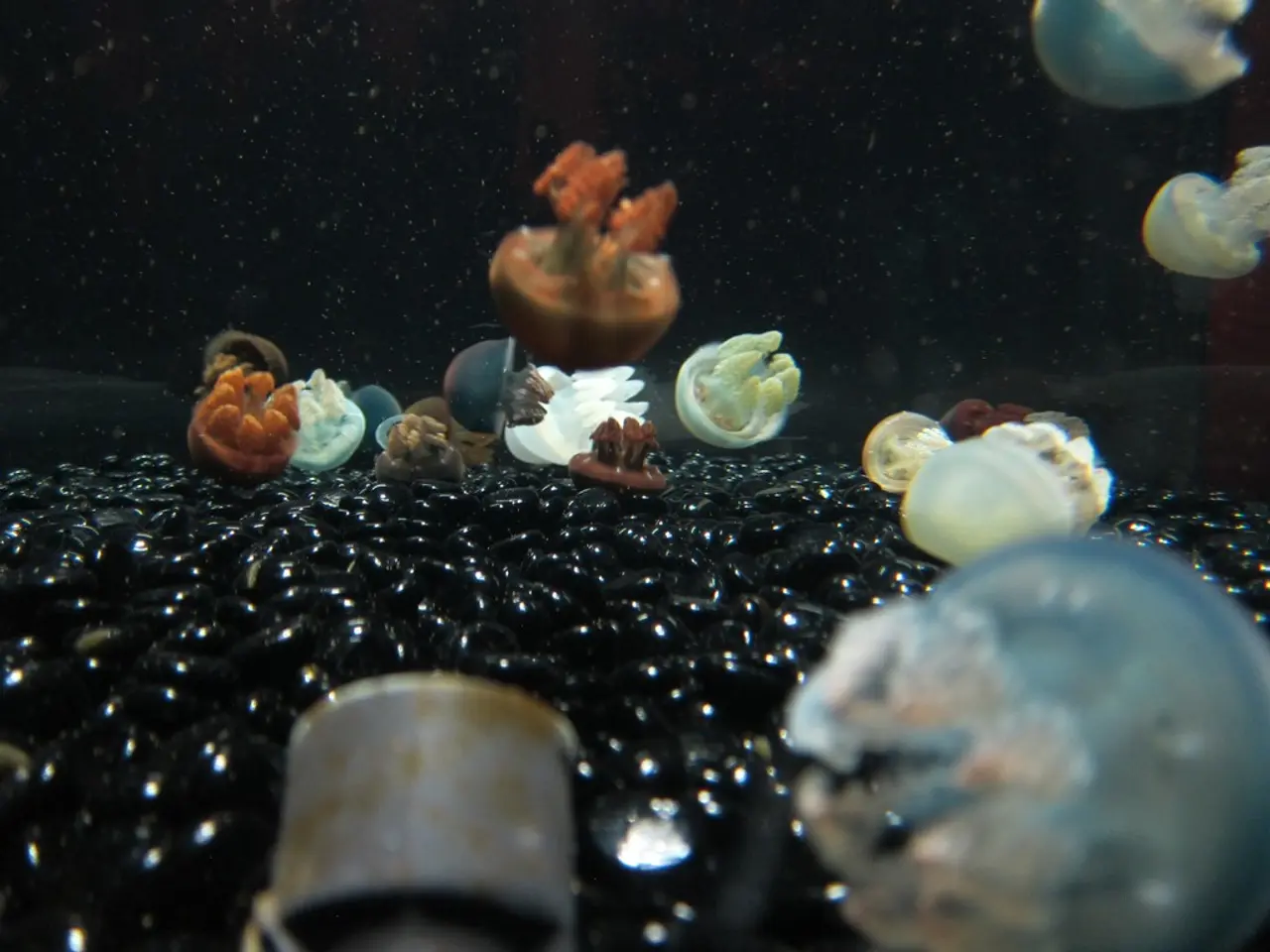Texas Woman Passes Away Due to Naegleria fowleri Infection from Contaminated RV Water Supply
A tragic incident in Texas has highlighted the importance of following recommended safety measures when using nasal irrigation devices, particularly when water comes from recreational vehicles. A 71-year-old woman lost her life to a rare and nearly always fatal infection caused by Naegleria fowleri, a shapeshifting amoeba that lives in soil and warm freshwater.
According to the Centers for Disease Control and Prevention (CDC) and the Texas Department of State Health Services, the woman contracted the infection through tainted tap water sourced from a recreational vehicle. The incident was detailed in the CDC's Morbidity and Mortality Weekly Report.
Most cases of PAM (Primary Amebic Meningoencephalitis, the disease caused by Naegleria fowleri) are caught when people get water up their nose while swimming in warm lakes. However, this case serves as a stark reminder that the amoeba can also be found in contaminated tap water used for nasal irrigation.
PAM is very rare, with only around 150 cases reported in the U.S. since the amoeba was discovered in the 1960s. Once in the brain, N. fowleri feeds on brain cells and triggers massive inflammation, causing a severe brain infection.
To prevent PAM, it is crucial to follow recommended nasal irrigation practices. These include using distilled, sterilized, or boiled and cooled tap water, and avoiding untreated tap water or RV campground water directly for nasal rinsing. Boiling water for at least one minute (or three minutes at higher elevations) kills the amoeba. After boiling, let the water cool before use. If in doubt, filter water with a filter that has a pore size of 0.2 microns or smaller before use for nasal rinsing.
In addition, flushing the RV plumbing by running taps and hoses for several minutes before use can help flush out potential biofilms where the amoeba might reside, especially after periods of non-use or when water system disinfectant levels have been changed.
The report authors emphasize the unique danger posed by improperly cleaned RV water systems. In this case, it appears that the RV's water system wasn't properly disinfected, likely explaining how the amoeba found its way into the woman's tap water.
Texas and federal health officials have created an infographic for RV users to follow to lower their risk of PAM and other waterborne illnesses. The infographic underscores the importance of maintaining good hygiene of water containers and avoiding water entering the nose while bathing, showering, or swimming in small hard plastic or inflatable pools.
If bathing or swimming in natural freshwater sources (lakes, rivers, hot springs), minimize water entering your nose by holding your nose or wearing nose clips, and avoid diving or jumping into warm freshwater. Keep small pools or splash pads clean by regularly emptying, scrubbing, and drying them.
In summary, for RV users, it is critical to treat any water intended for nasal irrigation by boiling, purchasing sterile or distilled water, or using appropriate filtration. Do not use campground tap water or untreated faucet water directly in neti pots or nasal rinsing devices. Flushing the RV water system periodically and maintaining good hygiene of water containers can also minimize risk.
If symptoms such as severe headache, fever, nausea, neck stiffness, altered mental status, or seizures develop after water exposure, seek immediate medical care. These steps are vital for preventing the rare but nearly always fatal Naegleria fowleri infection during nasal irrigation with potentially contaminated water sources.
- The tragic incident in Texas has underscored the importance of following recommended safety practices when using nasal irrigation devices, particularly in cases where water comes from recreational vehicles.
- Science and health officials stress the significance of using distilled, sterilized, or boiled water for nasal irrigation to prevent the rare and nearly always fatal Naegleria fowleri infection.
- In addition to proper water treatment, regular flushing of RV plumbing can help eliminate potential biofilms where Naegleria fowleri might reside, thus reducing the risk of such medical-conditions.
- To further mitigate the chances of acquiring neurological disorders like Primary Amebic Meningoencephalitis (PAM), fitness-and-exercise enthusiasts should be aware of the risks associated with water sports and avoid causing water to enter their nose during swimming, bathing, or showering.
- In the event of exposure to natural freshwater, it's recommended to minimize nose water entry by holding one's nose or wearing nose clips and avoiding diving or jumping. Keeping small pools and splash pads clean by regularly emptying, scrubbing, and drying them can also help prevent waterborne illnesses.




